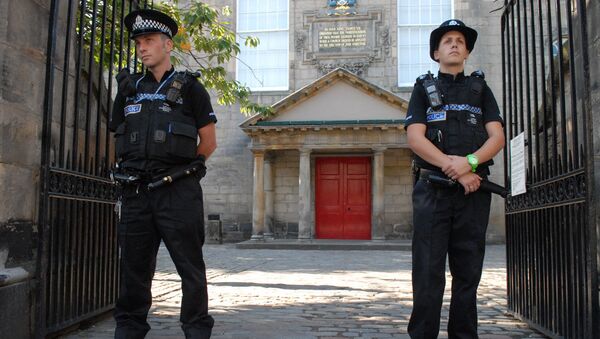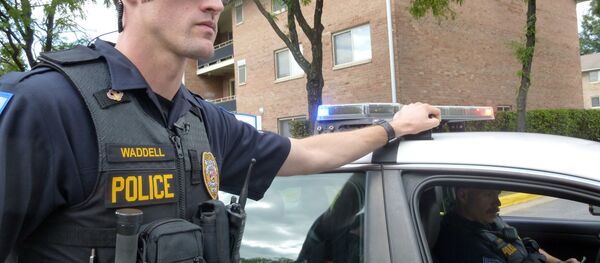Police Scotland has revealed the rewards paid out to covert human intelligence sources (CHIS) over the last three years. The monetary value paid out over the last three years averages around 200,000 pounds, the figure neared 250,000 pounds last year. For the financial year 2017-2018, almost 20,000 pounds per month was spent rewarding covert human intelligence sources in Scotland. Sputnik spoke with Tim Dees, a retired police officer from the US, to discuss the issue.
Sputnik: Police informants are known colloquially as ‘grasses,’ ‘narks’ or ‘snouts.’ Who are they, and how are they employed?
Tim Dees: A police informant can be an interested citizen who has information, and is coming forward and trying to do their part for the community. They are probably the minority. The next group, the largest, are people who have got caught doing something they shouldn't, and in an effort to reduce their own consequences, they agree to give information on someone else. The most common scenario here is with narcotics informants, where someone is caught, say, a relatively low-level dealer is caught with an amount that can be charged as possession with intent for sale, so they can be sent away for quite a long time.
READ MORE: 'Appalling, Inhuman, Degrading': The Horrors of European Arrest Warrants Exposed
The detective will say, 'Well who is your supplier? Who can you give me?' Sometimes they'll do what's called a controlled buy, where they'll be given marked money, and may be fitted with a listening device, and they'll go to their supplier and they will buy narcotics with that marked money. So that it's clear that the cash was used in the transaction. Sometimes the police will bust the supplier, and then play that game again. You keep working your way up the chain that way.
READ MORE: UK Schoolboy Viciously Attacked With Claw Hammer (PHOTO)
There's a third group, which is really small, and these are professional informants. People who are usually on the wrong side of the law in some way, but they make it their practice to associate with people who are involved in crime, and give information to the police. They gather intelligence from their association.
But if you're discovered, you usually end up floating face down in a river in some place.
Sputnik: It sounds a lot like corruption to me, but surely when you’re working in cahoots with the police, it must be protected by the law?
Tim Dees: It's not corruption if the police are working towards legitimate ends of law enforcement. Informants have been used by every police organization I have ever heard of throughout history, this is nothing new. It's kind of a slimy topic. The informants, who are commonly called snitches, are not well respected by their peers, or by the police. They are not the sort of people that you really want to do much hanging out with, but they are a necessary evil.
Sputnik: With such a high number of informants on police books, and a rather surprising chunk of Police Scotland’s budget going towards covert intelligence, it does make you wonder whether there isn’t a better way to maneuver the whole ordeal. In society, are police informants still necessary? Could the police still do their jobs without them?
READ MORE: Police Body Cameras: Great Invention, Worthless Spend, Necessary Evil?
I didn't use informants really all that much. One of the hallmarks of someone who is going to be a good detective is their stable of informants, and how quickly can you build an informant network and manage that. A detective is often said to be 'only as good as his informants.' So the people that I worked with that had regular informants to go to, those people tended to be very successful. Otherwise, you are largely flying blind.
Sputnik: So the use of CHIS is rife, and has been around as long as the police have. But of late, there are some disturbing stories emerging on the subject. Lush recently upheld a campaign exposing the misconduct of undercover police infiltrating political groups. Meanwhile, an investigation into the use of juvenile sources is underway in the UK. At present, there appear to be very few young people engaged in CHIS reporting, but there still are a number caught up in the practice. Is the ‘snitch’ route a favorable route to go down?
Tim Dees: Everybody in law enforcement knows you don't trust a snitch. They constantly have to prove themselves. The guy that comes off the street cold, especially if he has something to gain by giving you this information, that information is going to be suspect.
The views and opinions expressed in this article are solely those of the author and do not necessarily reflect those of Sputnik.




